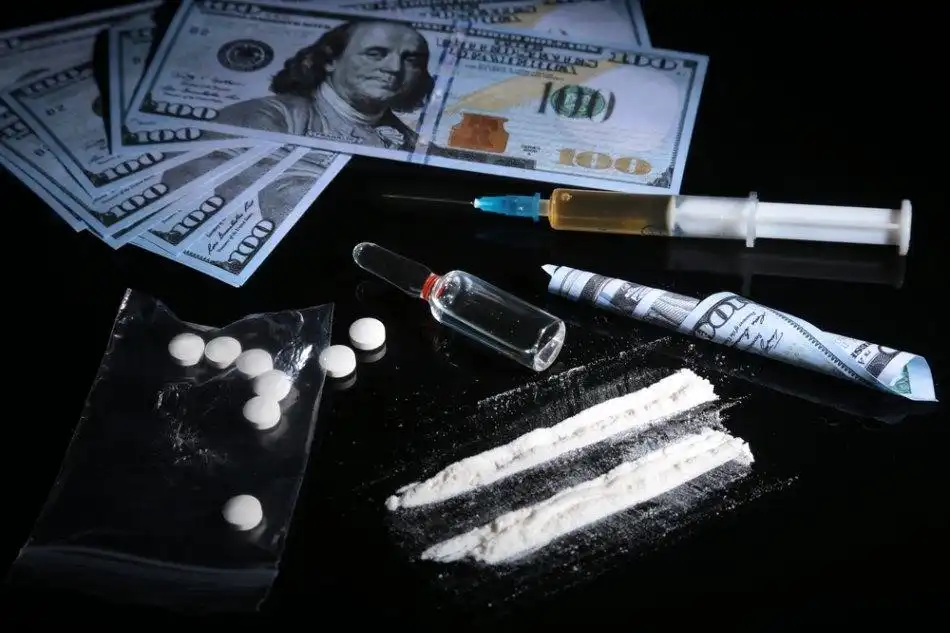Denver Healthcare’s Fight Against Drug Overdose

Drug overdose is a serious and worrying problem in Denver, and it’s hurting a lot of people and communities. To fight against this, the healthcare systems in Denver are working hard and trying many different things. This article will look at what Denver healthcare is doing to stop drug overdoses. They are doing things like making sure naloxone is easy to get, teaching people about drugs and how to stop overdoses, and working together with the police.
The Opioid Crisis in Denver
Denver is grappling with an escalating opioid crisis, mirroring a nationwide trend of increasing drug overdose deaths. The city has seen a surge in fatalities linked to opioids, particularly synthetic opioids like fentanyl, which are far more potent than traditional narcotics. The misuse of prescription opioids, including medications such as oxycodone, has significantly contributed to this public health emergency. These drugs, often obtained illicitly or used in the wrong dose, are causing devastating effects across various communities.
A critical factor in the crisis is the availability and accessibility of these potent substances, compounded by a lack of adequate education and prevention programs. Many individuals, unaware of the risks or suffering from underlying medical conditions, fall into the trap of addiction, often with tragic outcomes.
To really tackle this problem, everyone needs to work together, like doctors, people who make rules, and groups in the community. Some important things to do are to make sure people can get treatment for addiction and help for mental health problems. This is really important for people who are dependent on opioids. Also, it’s important to do more things to reduce harm, like giving out naloxone, a drug that can save someone who overdoses on opioids.
People should also know more about the dangers of synthetic opioids and how to use medication safely. To stop the opioid problem, Denver needs to do many things, like treatment, teaching, and ways to prevent it. This can help save lives and stop people from overdosing on drugs.
Increasing Access to Naloxone
Increasing access to naloxone is crucial in the fight against drug overdose. Naloxone availability saves lives by quickly reversing the effects of opioid overdose, giving individuals a chance to seek medical help. However, there are still barriers to access, such as limited distribution channels and cost concerns, that need to be addressed to ensure that naloxone is readily available to those who need it most.
Naloxone Availability Saves Lives
Access to naloxone is crucial in saving lives in the fight against drug overdose in Denver healthcare. Naloxone, also known as Narcan, is an opioid overdose reversal medication that can quickly restore breathing and prevent fatalities. Its availability is essential for the following reasons:
- Naloxone is a lifesaving tool that can reverse the effects of opioid overdose.
- Quick access to naloxone ensures immediate intervention during emergencies.
- Naloxone can be administered by anyone, including family members, friends, or bystanders.
- Increasing naloxone availability empowers communities to be proactive in combating overdose deaths.
- By increasing access to naloxone, we demonstrate compassion and support for individuals struggling with addiction.
Overcoming Barriers to Access
Denver healthcare is actively working to overcome barriers and enhance the availability of naloxone, a life-saving opioid overdose reversal medication. One of the key barriers to access is the cost of naloxone. To address this issue, healthcare providers are working with insurance companies and government agencies to ensure that naloxone is covered by insurance plans and available at an affordable cost.
Additionally, efforts are being made to increase the accessibility of naloxone by distributing it in various settings, such as emergency departments, pharmacies, and community organizations. Education and training programs are also being implemented to ensure that individuals are aware of naloxone and how to use it effectively in the event of an overdose. By overcoming these barriers, Denver healthcare aims to save lives and reduce the devastating impact of opioid overdoses.
Education and Prevention Initiatives
To address the rising drug overdose rates, Denver healthcare has implemented comprehensive education and prevention initiatives. These initiatives aim to raise awareness about the dangers of drug abuse and equip individuals with the knowledge and resources to make informed decisions. The following bullet points highlight some key components of Denver’s education and prevention efforts:
- Community outreach programs: Engaging with local communities to provide information and resources on drug abuse prevention.
- School-based prevention programs: Implementing evidence-based prevention programs in schools to educate students about the risks associated with drug use.
- Prescription drug monitoring: Monitoring the prescribing and dispensing of controlled substances to prevent misuse and diversion.
- Public awareness campaigns: Utilizing media channels to disseminate messages about the risks of drug abuse and the importance of seeking help.
- Training for healthcare professionals: Providing training and resources to healthcare professionals to enhance their ability to identify and intervene in cases of drug overdose.

Collaborative Efforts With Law Enforcement
To step up their fight against drug overdose, Denver’s healthcare providers are teaming up with law enforcement. They understand that dealing with drug overdose is a big problem that needs many solutions. By working together, healthcare and law enforcement can find out where drug overdoses happen a lot and stop them from happening. They can also help people who have problems with drugs. These partnerships also let healthcare workers get important information from the police about what’s happening with drug abuse. Together, Denver’s healthcare and law enforcement are making progress in reducing drug overdose and saving lives in their community.
Supporting Recovery and Treatment Programs
Collaborative efforts between healthcare providers and law enforcement have led to significant support for recovery and treatment programs in addressing the drug overdose crisis. These programs play a crucial role in helping individuals overcome addiction and regain control of their lives. Here are five ways in which recovery and treatment programs are making a difference:
- Providing access to evidence-based therapies and medications that help manage withdrawal symptoms and prevent relapse.
- Offering counseling and support groups that promote emotional healing and provide a sense of community.
- Implementing holistic approaches that address the physical, mental, and social aspects of addiction.
- Supporting families and loved ones affected by addiction through education and counseling services.
- Advocating for policy changes and increased funding to improve access and quality of care.
Evaluating the Impact and Future Steps
To make sure Denver healthcare is doing well in the fight against drug overdose, it’s important to check how things are going and plan for the future. By looking at what’s happening now, healthcare workers can see what’s working and what needs to get better. This helps them focus on the things that help stop drug overdose. It also helps them decide where to spend money to make the most difference.
Future steps can then be planned based on the evaluation findings, with a focus on enhancing existing programs, implementing new strategies, and collaborating with community stakeholders. These steps may include expanding access to overdose reversal medications, increasing education and awareness campaigns, and strengthening partnerships with law enforcement and addiction treatment providers. Through ongoing evaluation and strategic planning, Denver healthcare can continue to make progress in combating drug overdose and saving lives.
Conclusion
Denver’s healthcare system is taking significant steps to combat the drug overdose crisis. By increasing access to naloxone, implementing education and prevention initiatives, collaborating with law enforcement, and supporting recovery and treatment programs, they are making progress in addressing the issue. However, ongoing evaluation of the impact of these efforts and the need for future steps are crucial to ensure the effectiveness of their interventions.
